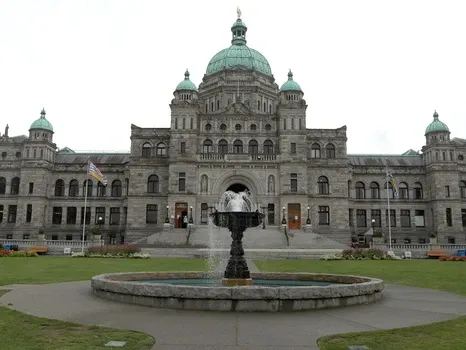Finance Minister Katrine Conroy tabled the 2024 provincial budget in the legislature earlier today. Notably for local governments, the Budget does not include any new funding commitments for shelter spaces, addiction treatment and recovery, harm reduction and community mental health programs. To dampen housing demand, the Province is moving forward with a flipping tax that closely aligns with a recommendation from UBCM’s 2018 Housing Strategy.
Addiction treatment/recovery & community mental health
Budget 2024 does not provide any additional funding to expand addiction treatment, recovery, harm reduction or community mental health programs. $215 million in spending will be dedicated to maintaining programs currently operating or being implemented.
BC Home Flipping Tax
Effective January 1, 2025, the Province will introduce a tax on profit for homes sold within two years of purchase. Exemptions for life circumstances, such as divorce will be provided. Revenue from the tax will go directly to building affordable housing.
The tax rate will be 20% for properties sold within 365 days of purchase and will decline to zero between 366 and 730 days. The tax will apply to income from the sale of properties with a housing unit and properties zoned for residential use. The tax will also apply to income from the assignment of contracts to purchase these properties.
The tax will apply to properties sold on or after January 1, 2025. Properties sold after the effective date will be subject to the tax if purchased within two years of the sale. The tax will apply even if the property was purchased before the effective date.
The new flipping tax aligns closely with a recommendation from UBCM’s 2018 Housing Platform.
Additional and Continuing Housing Measures
Property Transfer Tax exemptions: The budget increases the threshold for the First Time Homebuyers’ Program. Qualifying first-time buyers can benefit when they purchase a home worth up to $835,000, with the first $500,000 completely exempt from the property transfer tax. People purchasing newly constructed homes worth up to $1.1 million will also see lower costs through the newly built home exemption.
New BC Builds funding: The budget provides $198 million over three years in operating and capital funding to BC Builds in addition to previously announced funding.
Purpose-built rental incentive: The budget commits to a property tax exemption for new, eligible purpose-built rental buildings between January 1, 2025, and December 31, 2030.
Spending and Debt Increases
Three-year government spending is expected to increase from over $83 billion in 2023/24 to nearly $93 billion in 2026/27. The fiscal plan includes Contingencies vote estimates, totaling $3.89 billion in 2024/25, $3.02 billion in 2025/26, and $3.73 billion in 2026/27. B.C.’s taxpayer-supported debt at the end of 2023/24 is forecast to be $71.9 billion. It is expected to increase over the fiscal plan period to reach $126.5 billion by 2026/27, with the debt-to-GDP ratio rising to 27.5%.
Emergency Management
Budget 2024 will provide $252 million in new funding over four years to bolster capacity to prepare for and respond to future climate emergencies.
This commitment includes $18 million that will be provided over three years to support provincial and regional operations centres and coordinate communications that alert residents to imminent hazards and evacuation orders.
This commitment will provide more full-time staff at regional offices and additional base staff to support the Disaster Financial Assistance program.
This budget allocation will also improve support for evacuees by funding specially‑trained Service BC call centre agents who provide virtual navigation for accessing information and emergency services. Other new Service BC staff will be available to be deployed directly to impacted communities to facilitate critical emergency services, such as emergency funding distribution and on‑site replacement of official documents.
Police Tax Rates
The police tax is a provincial property tax to help recover the Province’s costs of policing in rural areas and small municipalities with populations below 5,000. The Police Act allows for up to 50% of legislated costs to be recovered through the police tax. Additional policy-based deductions further reduce the revenue. Effective for the 2024 tax year, the police tax rate is set to recover 33% of legislated costs, after policy-based deductions, consistent with the policy in place since 2023.
CleanBC
CleanBC will provide $318 million over the next three years, including:
- $20 million in active transportation grants to communities
- $40 million for additional heat pump rebates for low and middle-income households
- $30 million for the implementation of electric vehicle charging infrastructure
Economic Development
Critical Minerals: $24 million in new funding will be provided over three years for the BC Critical Minerals Strategy to support regional and major mine permitting.
Northwest Resource Benefits Alliance: The Province will provide $250 million over five years to support the 21 local governments that make up the Northwest BC Resource Benefits Alliance. Funding will be used to support the planning and construction of local government infrastructure, such as roads, water, sewer and other community facilities needed to support new industrial development and create liveable communities for their workforce.

